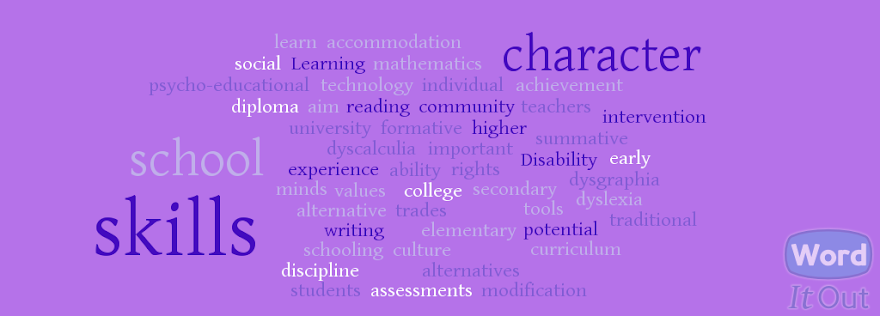Learning Disability
A learning disorder evident in both academic and social situations that involves one or more of the processes necessary for the proper use of spoken language or the symbols of communication, and that is characterized by a condition that:
a) is not primarily the result of:
b) results in a significant discrepancy between academic achievement and assessed intellectual ability, with deficits in one or more of the following:
c) may be associated with one or more conditions diagnosed as:
"Learning Disabilities" refers to a variety of disorders that affect the acquisition, retention, understanding, organization or use of verbal and/or non-verbal information. These disorders result from impairments in one or more psychological processes related to learning (footnote a), in combination with otherwise average abilities essential for thinking and reasoning. Learning disabilities are specific not global impairments and as such, are distinct from intellectual disabilities.
oral language (e.g., listening, speaking, understanding)
reading (e.g., decoding, comprehension)
written language (e.g., spelling, written expression)
mathematics (e.g., computation, problem solving)
phonological processing
memory and attention
processing speed
language processing
perceptual-motor integration
visual-spatial processing
executive functions (eg, planning, monitoring and metacognitive abilities)
Approved by the LDAO Board of Directors, May 2001.
Learning disabilities range in severity and invariably interfere with the acquisition and use of one or more of the following important skills:
Footnote a:
The term "psychological processes" describes an evolving list of cognitive functions. To date, research has focused on functions such as: 
No comments:
Post a Comment